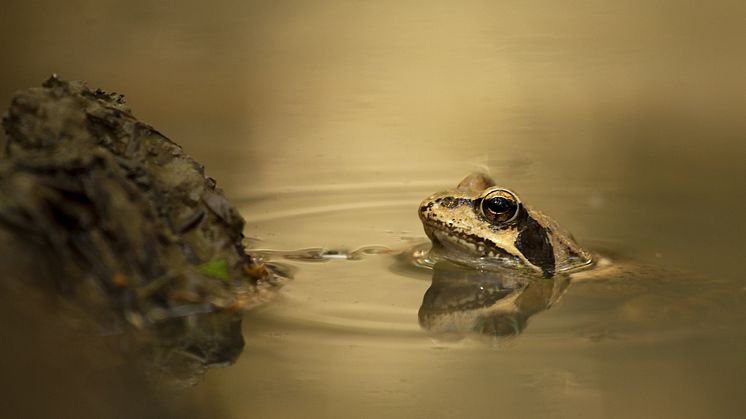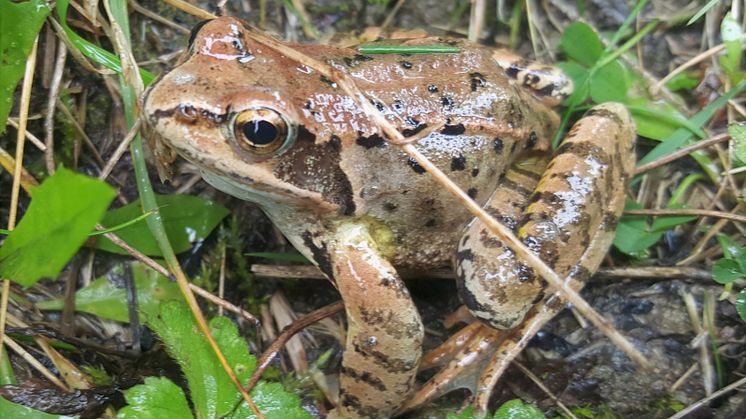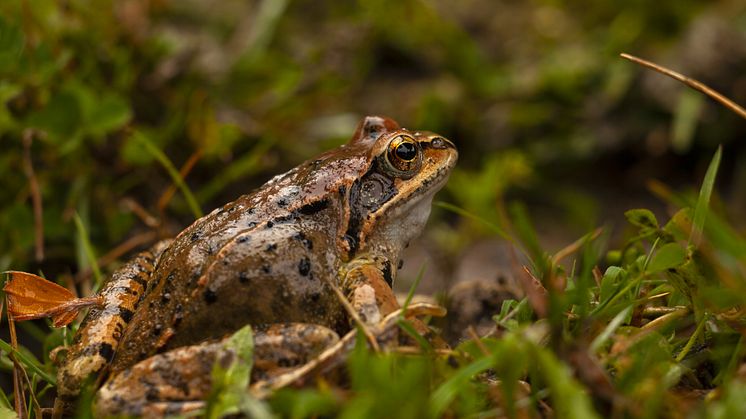
Press release -
Multigenerational effects of environmental toxins
The effects of the endocrine disruptor linuron on frogs are not limited to those exposed, but are passed on to their offspring and grand-offspring. First generation offspring have reduced body weight and decreased fertility, while second generation offspring have increased body weight and a disrupted metabolism. This is demonstrated by a new study conducted by researchers at Uppsala University and Stockholm University that has now been published in the journal Science of the Total Environment.
“The results show that animals injured by environmentally hazardous substances may pass on these effects to future generations, which demonstrates the complex role of environmental toxins in species extinction, especially frogs,” says Cecilia Berg, associate professor of ecotoxicology at Uppsala University’s Department of Organismal Biology and one of the authors of the article.
Almost half of all species of amphibians, of which frogs are a significant part, are threatened by extinction, with environmental toxins a contributory factor. It has, for example, been demonstrated that endocrine disrupting pesticides such as linuron damage the reproductive capacity of amphibians. The extent of this damage and whether it can be passed down the generations is as yet not fully understood.
Researchers at Uppsala University and Stockholm University have studied the multigenerational effects of the endocrine disrupting pesticide linuron on frogs.
The study compared offspring of males of the species western clawed frog (Xenopus tropicalis) that had been exposed to linuron as tadpoles to the offspring of a control group that had not been exposed to linuron.
The researchers observed that the first generation of offspring had reduced body weight, decreased fertility and signs of endocrine system disruption compared to the control group.
The next generation – i.e., the grand-offspring of the exposed frogs – had increased body weight and disruption to the metabolism of fats and carbohydrates compared to the control group.
“The likely explanation is that the pesticide inhibits the function of testosterone and thyroid hormones in the body and that these changes are then passed on to future generations via sperm and epigenetic mechanisms. This leads to hereditary changes in gene regulation in the offspring,” explains Berg.
The three-year study was conducted at the Division of Environmental Toxicology at Uppsala University, one of the few laboratories in the world conducting lifecycle studies on frogs. By using the western clawed frog as a model organism, Berg’s research group has developed a test system for studying how chemicals affect the reproductive system.
“This is the first time that anyone has been able to demonstrate that pesticides can cause effects that are passed on to several generations of frogs. This knowledge is important for understanding the environmental impact of endocrine disrupting chemicals, which is in turn necessary for maintaining biodiversity,” says Oskar Karlsson, associate professor of toxicology at Stockholm University’s Department of Environmental Science.
Reference: Oskar Karlsson et al.; Pesticide-induced multigenerational effects on amphibian reproduction and metabolism, Science of the Total Environment, 2021, 145771, ISSN 0048-9697, https://doi.org/10.1016/j.scitotenv.2021.145771.
Further information:
Cecilia Berg, Researcher at the Department of Organismal Biology, Uppsala University, email: Cecilia.Berg@ebc.uu.se, phone: +46-730-45 92 46
Topics
Uppsala University
The first University in Sweden. Quality, knowledge, and creativity since 1477. Education and research of the highest quality and relevance to society, business, and culture. Uppsala University is ranked among the world’s top higher education institutions. www.uu.se




